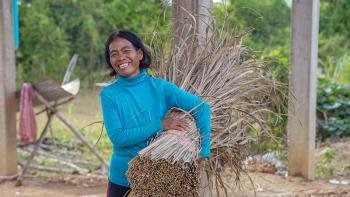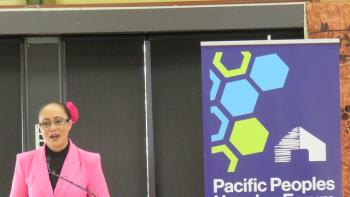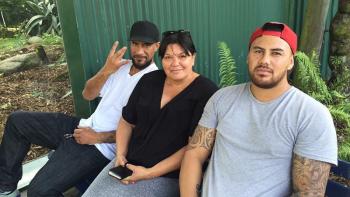Quick Facts
Individuals served in FY22: 6,695
- Through new construction – 55
- Through rehab – 6,640
Volunteers engaged in FY22: 2,273
Other facts:
- Capital: Wellington
- Population: 5 million
- Life expectancy: 80 years
- Unemployment rate: 5.3%
Source: World Factbook
The housing need in New Zealand
New Zealand has a shortage of approximately 23,000 homes, and continues to be one of the least affordable housing markets in the Western world, with home ownership rates sitting at 65%, a 70-year low. Over the past decade median house prices have more than doubled, according to data from the Real Estate Institute of New Zealand.
The inaugural 2022 Aotearoa Housing Survey, conducted by Habitat in conjunction with its corporate partner AMI, revealed that hundreds of thousands of New Zealand homes are cold, damp and expensive to heat. Almost one in 10 households is concerned about significant mould in their home while 14% of households worry their home is too cold in winter and 19% find it difficult to heat their home. The effects of unaffordable and inadequate housing are wide-reaching, adversely affecting the health, education, wellbeing and employment of many New Zealanders.
How Habitat addresses need in New Zealand
Habitat for Humanity New Zealand has eight affiliate offices, a National Support Centre in Auckland and a network of 22 ReStores around the country. Habitat delivers programming in New Zealand and the Pacific. We work with volunteers, corporations, government, nongovernmental organizations and donors to build or improve the place New Zealanders call home.
Home ownership
Habitat partners with families through the rent-to-buy Progressive Home Ownership program to help them eventually own their home. Since 1993, we have helped 550 families to successfully secure home ownership. However, our building programme became prohibitively more expensive due to the local market conditions. Hence, Habitat and three other community housing providers lobbied the government to provide financial support for a collective housing programme. In 2019 the government agreed to pilot a 15-year interest-free loan facility valued at NZ$400 million (about US$252 million). This has enabled Habitat to reinvigorate its rent-to-buy programme and the wider community housing sector to help hundreds of families, who would otherwise be locked out of the housing market, on the pathway to home ownership.
Building impact together
Habitat works with our affiliates to be a catalyst for community impact and improves housing conditions through providing housing support, construction services and healthy home initiatives. In the financial year 2022, Habitat partnered with families to repair 82 homes, assisted another 82 families towards home ownership and supported 23 families to complete the purchase of their homes.
Funding through ReStores
Proceeds raised through Habitat’s ReStores provide crucial funds for local housing adequacy programs which include initiatives such as improving ventilation, stopping draughts, fixing weathertightness, temporary window insulation, putting up curtains and installing ramps or heat pumps.
Pacific focus
Over the next five years, through the Negotiated Partnership program funded by New Zealand’s Ministry of Foreign Affairs & Trade, Habitat will reach 55 communities in Samoa, Fiji and Tonga, and involve around 30,000 people at the community level through the Participatory Approach for Safe Shelter Awareness, Build Back Safer, water, sanitation and hygiene program and financial literacy training. Habitat’s disaster response work focuses on supporting households into long-term secure and safe housing.


